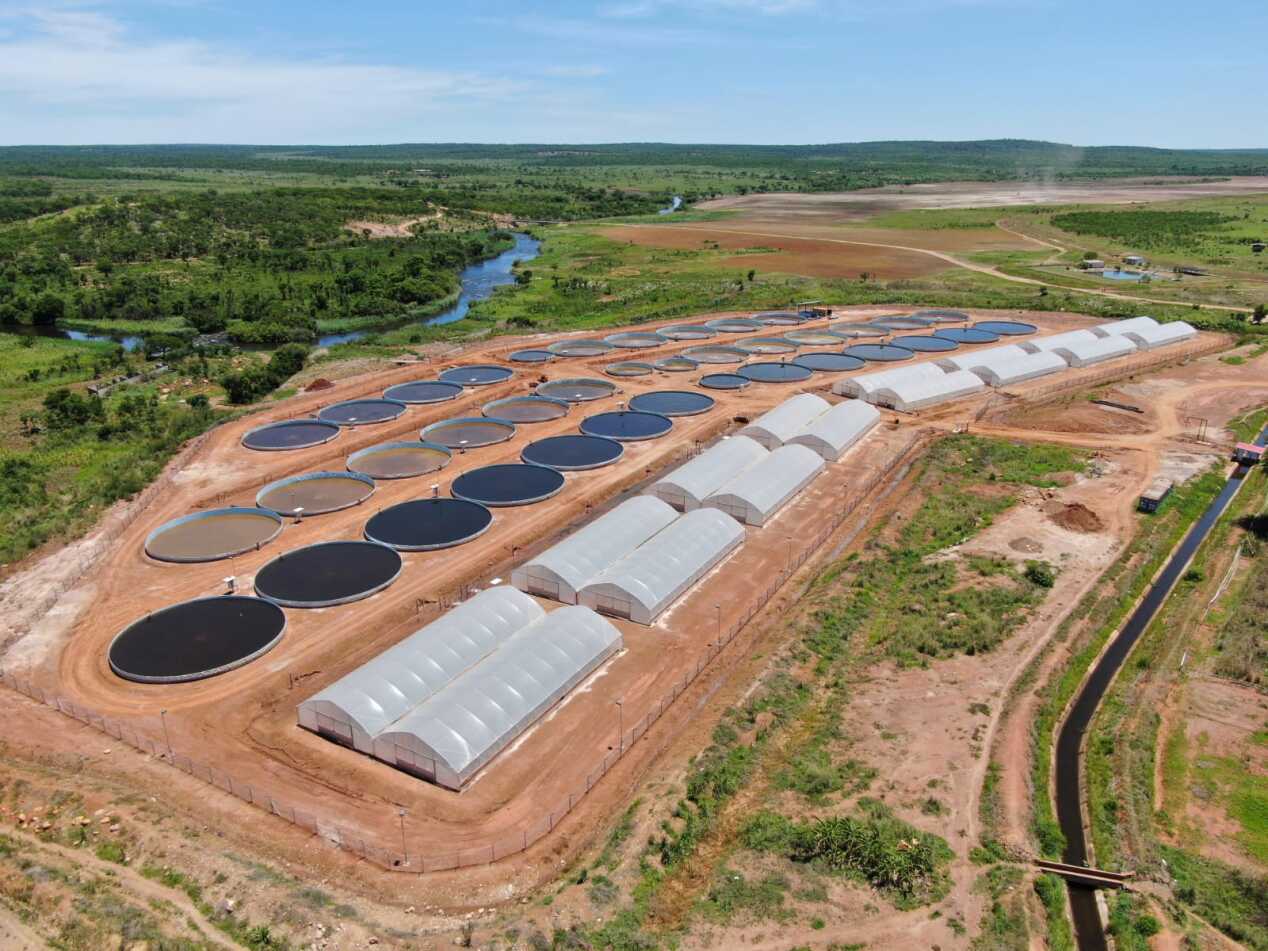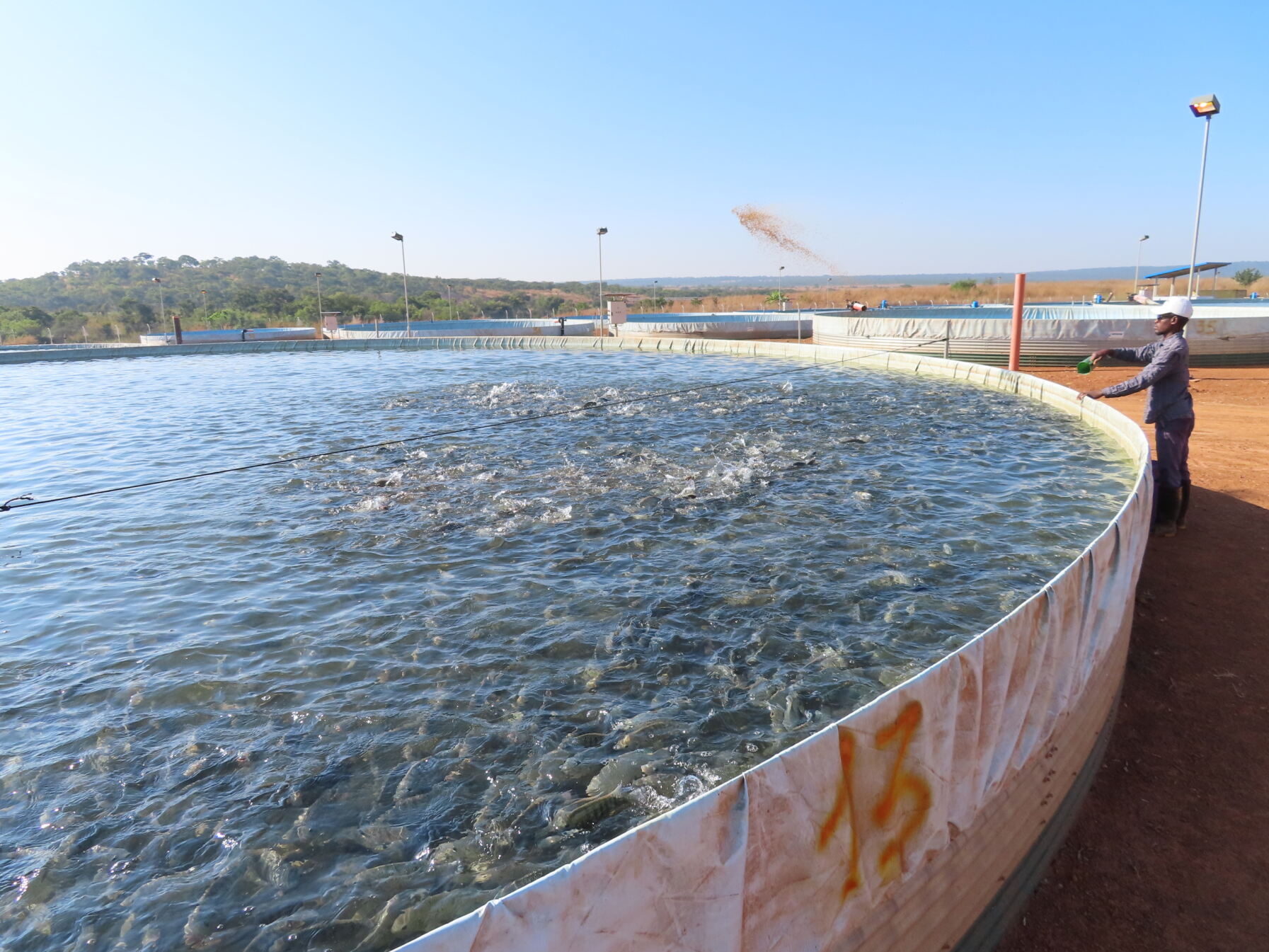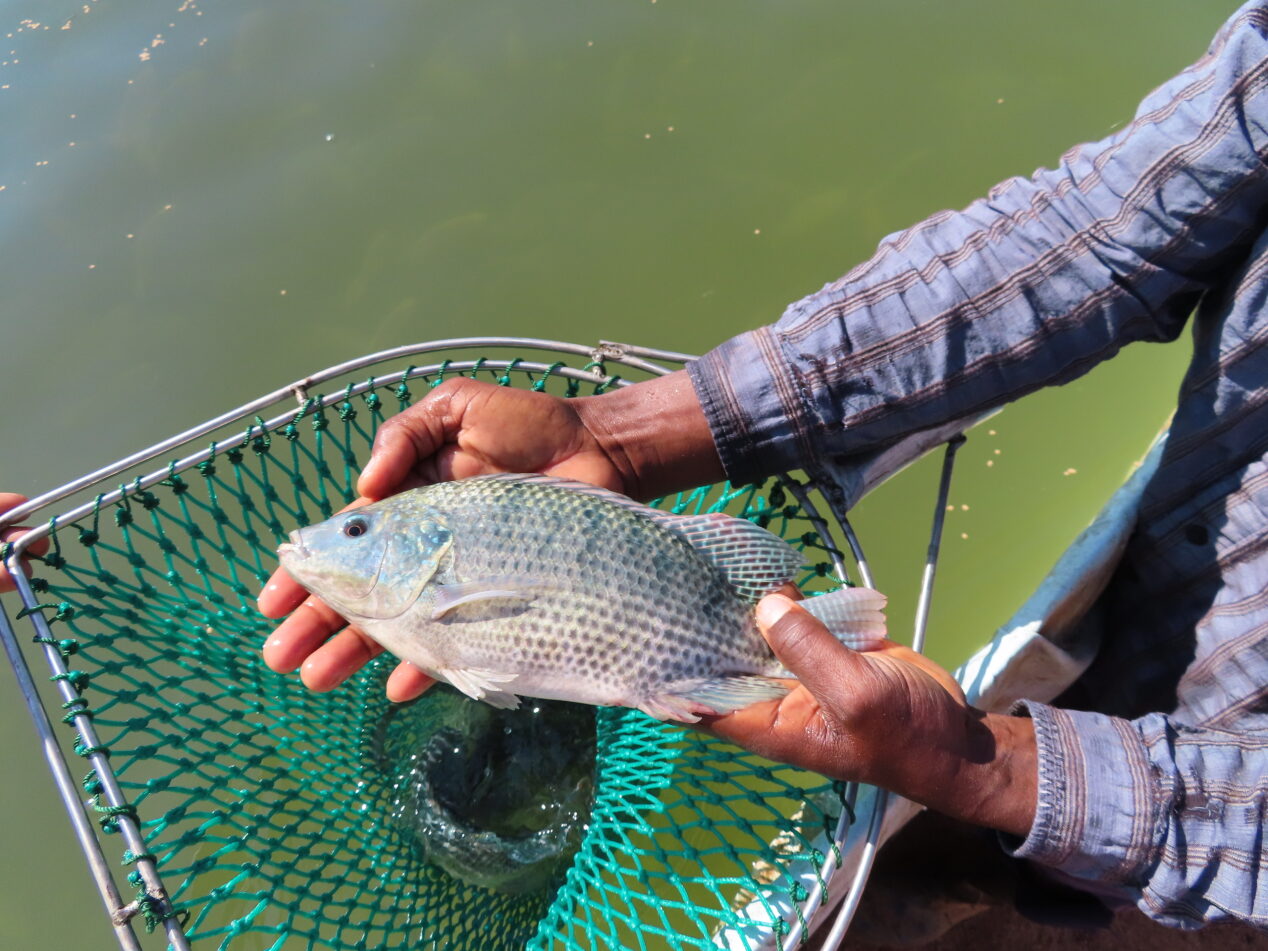Mitrelli
Tilapia Fish Farming
The Fish Farm initiative is part of the Angola’s government national food security strategy, addressing nutritional gaps and economic development by providing affordable, high-quality fish products while creating employment opportunities and knowledge transfer for local farmers.
Location:
Angola, Cuando Cubango Province
Inauguration year:
2020
Impact highlights:
- 500 tons of fresh tilapia produced annually, ensuring a steady supply of high-quality fish.
- 7-hectare aquaculture site, optimized for sustainable fish production and resource management.
- New jobs created, driving local aquaculture growth and economic development.
Official partners:
Ministry of Agriculture and Fisheries
Sector synergy:
SDG supported:
Project
challenges
Geographical Isolation – Cuando Cubango is over 1,000 km from Luanda and far from the seacoast, making fresh fish scarce and expensive.
Logistical Barriers – Transporting seafood over such long distances results in high costs and food spoilage, limiting availability.
Nutritional Deficiency – With limited access to fish, the local population struggles to meet their protein and dietary needs.
Water Source Protection – Ensuring clean water for fish farming was critical, requiring innovative filtration solutions to safeguard health and environmental sustainability.
Our solution
To overcome Cuando Cubango’s geographic isolation and ensure fresh fish availability, the project established a Tilapia Larvae Farming Center, producing high-quality fingerlings for continuous local supply, reducing reliance on long-distance seafood transportation.
To address logistical barriers, the project integrates local fish feed production, cutting costs and improving efficiency. Fish are cultivated in controlled ponds and fattening tanks, optimizing growth and yield despite the region’s remoteness.
For water sustainability and public health, an innovative plant-based bio-filter protects the local water source from contamination, reassuring the community of food safety and environmental responsibility.
A vocational training center equips farmers with modern aquaculture skills, fostering long-term industry growth.
Scope
of work
Comprehensive infrastructure development:
- Establishment of a Tilapia Larvae Farming Center for breeding and fingerling production.
- Construction of fattening ponds and controlled aquaculture tanks.
- Development of a local fish feed production facility.
- Construction of hatcheries and nursery facilities.
- Implementation of a plant-based bio-filter system.
- Establishment of a vocational training center.
Impact highlights



Water & Food Security projects
Water & Food Security
Samba Caju
Water & Food Security